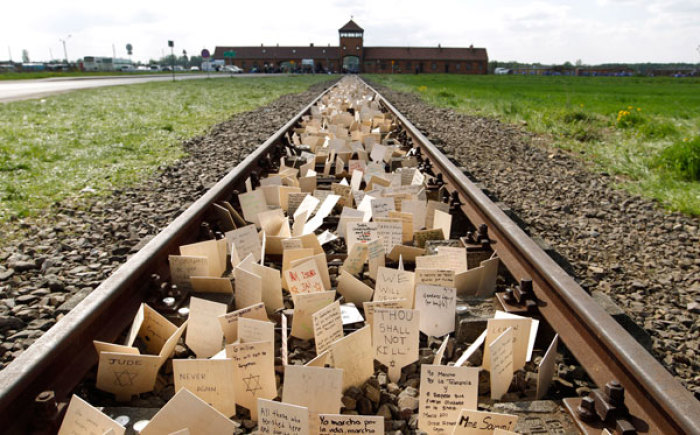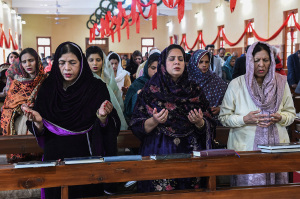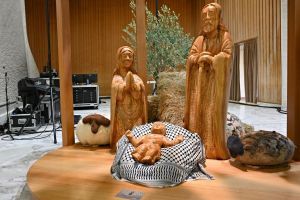An Astonishing Holocaust Story Discovered

I discovered one of the most extraordinary stories I've ever encountered. Before I share it with you, I need to set the context. The Polish Senate passed a bill Thursday making it illegal to claim Poland was complicit in Nazi atrocities committed on Polish soil during World War II. Violations would be punishable by up to three years in prison. The bill awaits a presidential signature to become law; Polish President Andrzej Duda has indicated that he intends to sign it.
There is no question that the Holocaust camps in Poland were operated by the Nazis, not the Poles. It is also true that the Polish people were horrifically victimized by Nazi Germany: at least 1.5 million were deported to Germany for forced labor; hundreds of thousands were imprisoned in concentration camps; at least 1.9 million were killed during the war.
But the new bill criminalizes any claim that the Polish people were in any way complicit in crimes against the Jewish people. What is the verdict of history? How is the question related to the astounding story I'll tell shortly?
Poland, the Allies, and the Holocaust
Yad Vashem, Israel's official memorial to Holocaust victims, recognizes thousands of Polish people as "Righteous Among the Nations," non-Jews who "took great risks to save Jews during the Holocaust."
Tragically, there were others who were not righteous. As Jonathan Tobin notes, "Anti-Semitism was endemic in pre-Holocaust Poland. Many, if not most Poles were largely indifferent to the fate of their Jewish compatriots."
In addition, historian Jan Gross records the massacre of hundreds of Jews by their Polish neighbors in 1941. In 1946, forty-two Jews were killed by police and townspeople in Kielce, Poland.
These atrocities seem to contradict the government's claim that the Polish people were in no way complicit in persecuting the Jews. My focus, however, is primarily on those in Poland and around the world who were aware of the Holocaust but did not do all they could to stop it.
In this, the Poles were by no means alone. As an occupied nation, there was far less they could do to end the death camps. However, Allied officials were in a very different position.
The Nazis' plan to exterminate the Jews was smuggled out of Poland by the Bund, a Jewish political organization, and reached England in the spring of 1942. Details of the report also reached the Allies from Vatican sources and from informants in Switzerland and the Polish underground.
Jan Karski, an emissary of the Polish underground, met personally with President Franklin Roosevelt and British Foreign Minister Anthony Eden. The American government confirmed the reports to Jewish leaders in November 1942 and publicized them immediately thereafter.
Historians will continue debating whether the Allies should have done more to stop the atrocities at Auschwitz and other death camps. But as the event I'll describe next makes clear, when we are aware of evil in the world, we must do all we can to stop it.
The twentieth train to Auschwitz
In preparation for this Daily Article, I visited the Dallas Holocaust Museum yesterday. It was an unforgettable experience.
One section of the museum tells an incredible story I had never heard before. I was so moved by the exhibit that I purchased Marion Schreiber's The Twentieth Train in the museum's bookstore. Here's a short version of the story she tells so masterfully.
The date was April 19, 1943. A train departed from Mechelen transit camp in Belgium bound for the death camp at Auschwitz. It was the twentieth such train to make the journey and was transporting more than 1,600 Jews to their deaths.
Three men were determined to stop it and free as many prisoners as they could. Their leader was a young Jewish doctor named Youra Livchitz. Brilliant and charismatic, Youra was also a writer and actor. Fluent in Latin, Greek, German, and French, his future was unlimited. He was joined by two non-Jewish friends, Robert Maistriau and Jean Franklemon.
The three were armed only with a lantern, a pistol, and two sets of pliers. They covered the lantern in red tissue paper to simulate a stop light and set it on the train track. When the train came to a halt, Youra fired his pistol to draw the attention of the Nazi soldiers. Robert and Jean jumped onto railway cars and used their pliers to pry open the doors.
Inspired by their actions, some of the Jewish prisoners sprang into action as well, making their way out of the cars and leaping to the ground. In all, 231 Jews fled the train that night. Twenty-three died in the attempt, while the others escaped into the countryside. Not one of them was betrayed back to the Nazis by the Belgian people.
Youra Livchitz was not so fortunate. He escaped the Nazis that night and continued his efforts on behalf of his fellow Jews, but he was eventually betrayed by a traitor and arrested. He escaped prison but was betrayed again and executed. Jean Franklemon and Robert Maistriau survived the war, dying in 1977 and 2008, respectively.
"The finest of all human struggles"
The Dallas Holocaust Museum displays a quotation by Albert Einstein: "The world is too dangerous to live in-not because of the people who do evil, but because of the people who sit and let it happen."
Scripture is clear: "Whoever knows the right thing to do and fails to do it, for him it is sin" (James 4:17). What evil is God calling you to prevent? What "right thing" is he calling you to do?
I'll close with a statement by Youra Livchitz displayed prominently at the museum: "The finest of all human struggles is against what we are and for what we should become."
Let's renew that struggle today.
Originally posted at the Denison Forum.




























